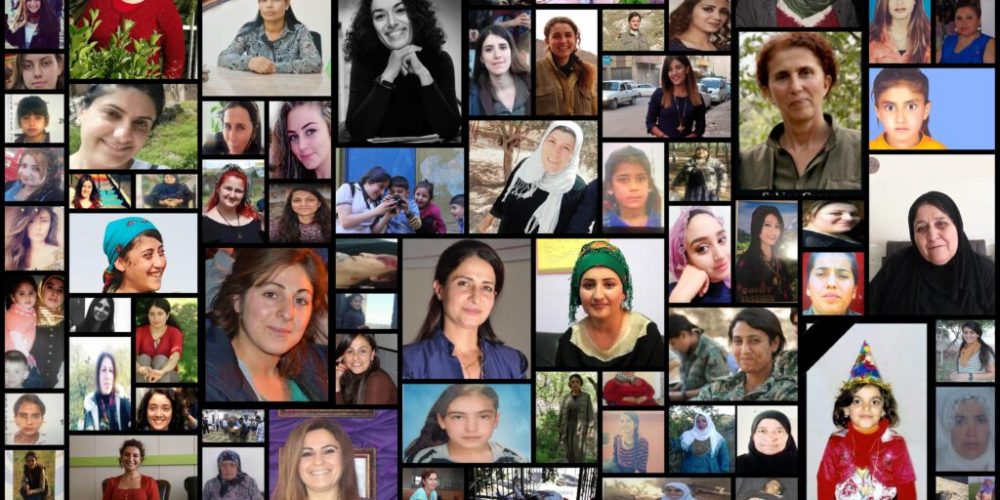Women in North and East Syria and beyond assassinated by the Turkish State
In previous articles we have analysed the discriminatory and misogynist policies of the AKP over the last twenty years, and the accompanying rise in feminicide; here we add another aspect to this analysis: a non-exhaustive list of women killed by the Turkish military or police, or related groups. In most cases they are civilian women, or members of the YPJ outside combat situations. In some cases women were killed in battle – the reason we also include their stories here is that their bodies were stripped, mutilated, filmed, and this film disseminated. This too is part of the war against women. The list is divided into two parts, the first concerning examples from North and East Syria, the second being some of the crimes committed in other territories. Both parts have been taken into consideration in order to develop a more complete vision of the policies that led to these killings, and to avoid the counterproductive division of the Kurdish people, and the struggle of which they are the vanguard.
In North and East Syria:
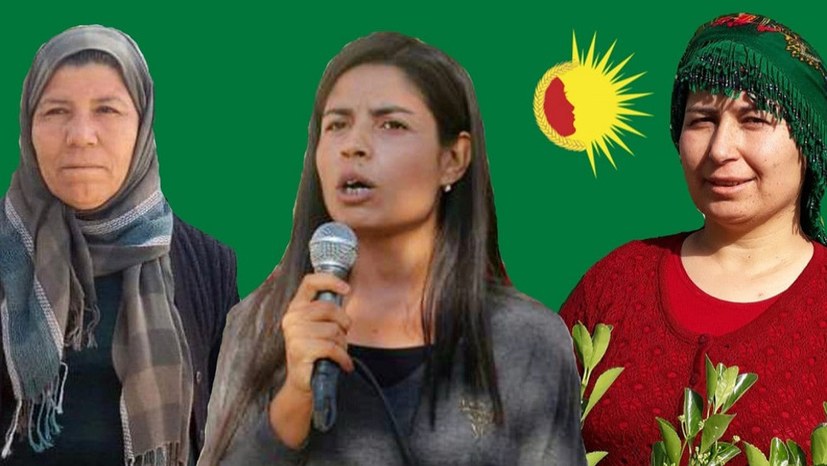
Zehra Barkal, was born in 1987 in the city of Kobane and was a member of the regional coordination of Kongra Star (Kurdish Women‘s Organisation in North and Eastern Syria) for the Euphrates region. She became part of the People’s Assembly in the city of Kobane, later being elected the co-mayor of the city. Badia Khalil was born in 1979 in the village of Bandar near the city of Kobane and was also a member of the coordination of Kongra Star. She joined the YPJ in 2014, providing support for many of those whose houses were damaged in the Kobane resistance. Amina Muhammad Weissi was born in 1965 in the village of Helanj, Kobane. She was mother of five children, taking part in all activities of the women’s movement and devoting all her energy to the revolution. On June 23-06-2020, a Turkish drone targeted the house of Amina Weissi in the village of Helanj, near the city of Kobane. The bombing of the house resulted in the deaths of Badia Khalil, Amina Weissi and Zehra Berkel.
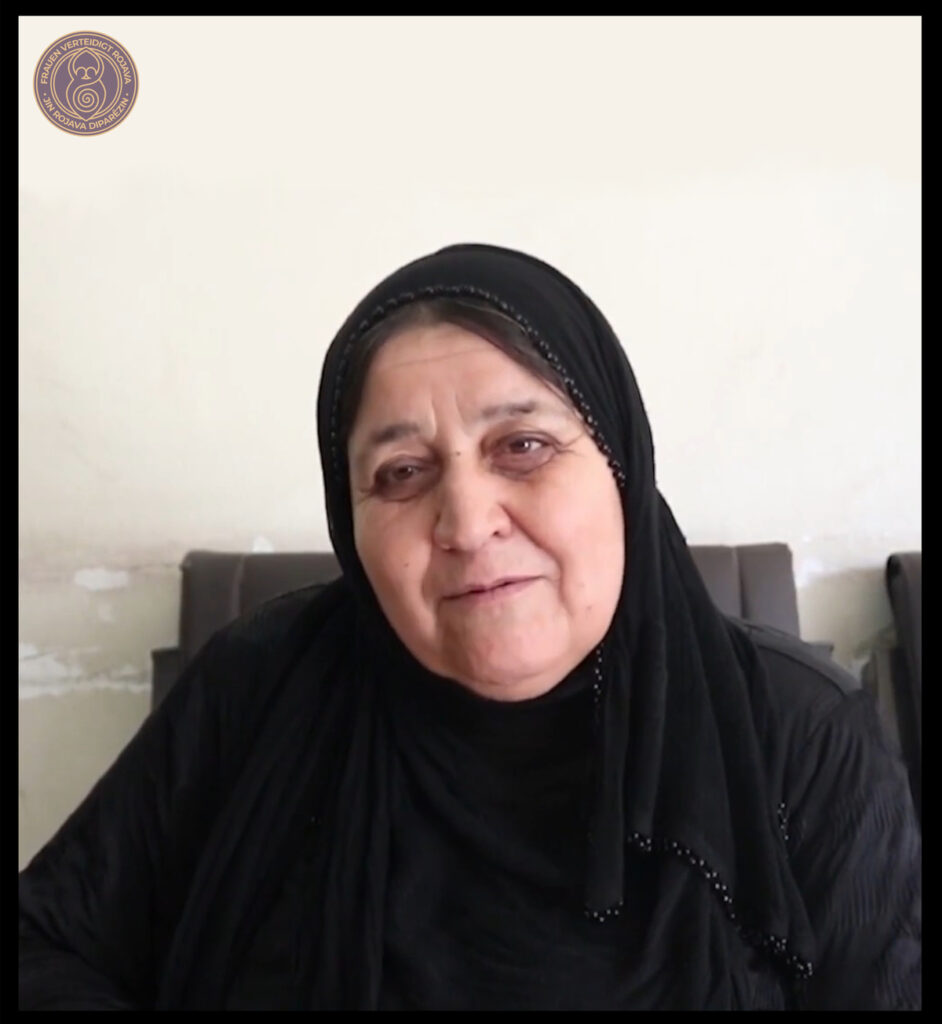
Aqeeda Ali Osman was born in 1966 in the village of Kerky Laki, and was a prominent figure in the national kurdish movement, as well as a fighter and female activist. During her struggle she was pursued and arrested by the Syrian regime’s forces. She decided to wear black after the arrest of Abdullah Ocalan in 1999, and maintained this stance until the day of her death on October 13, 2019. She participated in a convoy of civilians from the north and east of Syria heading to the city of Sere Kaniye (Rojava, Northern Syria) to help the people under attack. She died as a result of the Turkish occupation’s brutal bombing against the convoy.
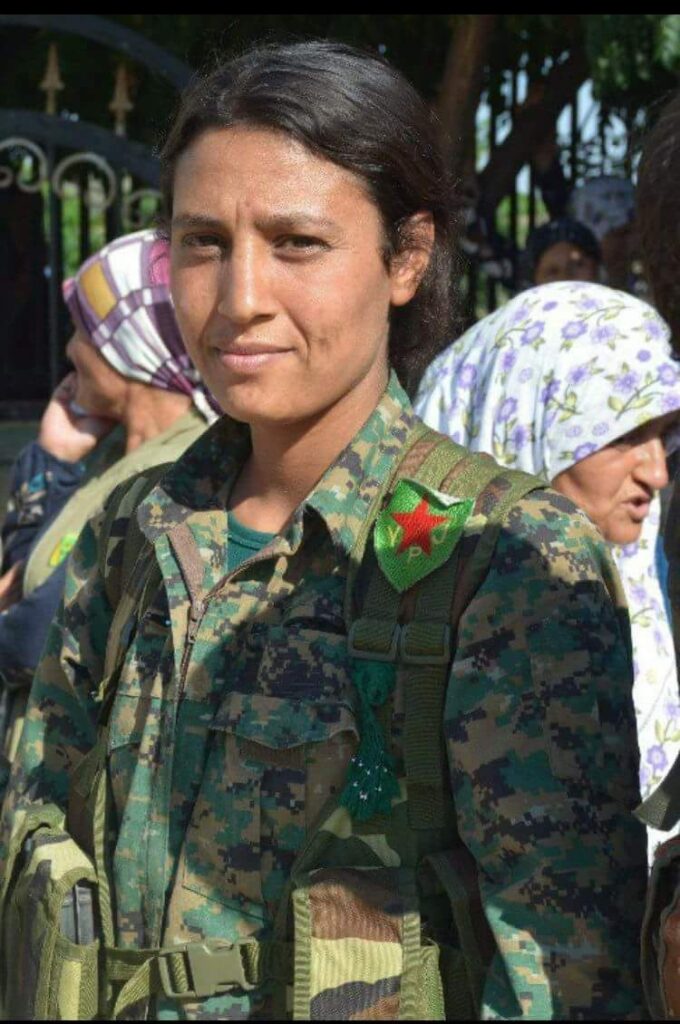
Barin Kobanê was born in 1994 in the village of Qarn Kalbin in the Al-Bab region, north of Aleppo. She lived with her family in the city of Kobane; when ISIS forces entered the Kobane area, her family was subjected to harassment and threats, with ISIS terrorists kidnapping her father and refusing to release him until Barin’s family paid a ransom. Barin joined the Women’s Protection Units (YPJ) after the massacres of Shengal, in order to avenge the assassinations and incarceration of women. These experiences taught her the concepts and values of democratic freedom, and the meaning of defending one’s homeland and standing together with its people. She fought ISIS in Kobane and Raqqa, and in the village of Qurna Barin and her companions courageously fought Erdogan’s mercenaries until the end. When they ran out of ammunition, she refused to surrender, using her final bullet on herself in order not to fall in the hands of the enemy alive. When they found her dead body they stripped her of her clothes, and tore and mutilated her. They then made and shared a video of someone stepping on her body to demean her.
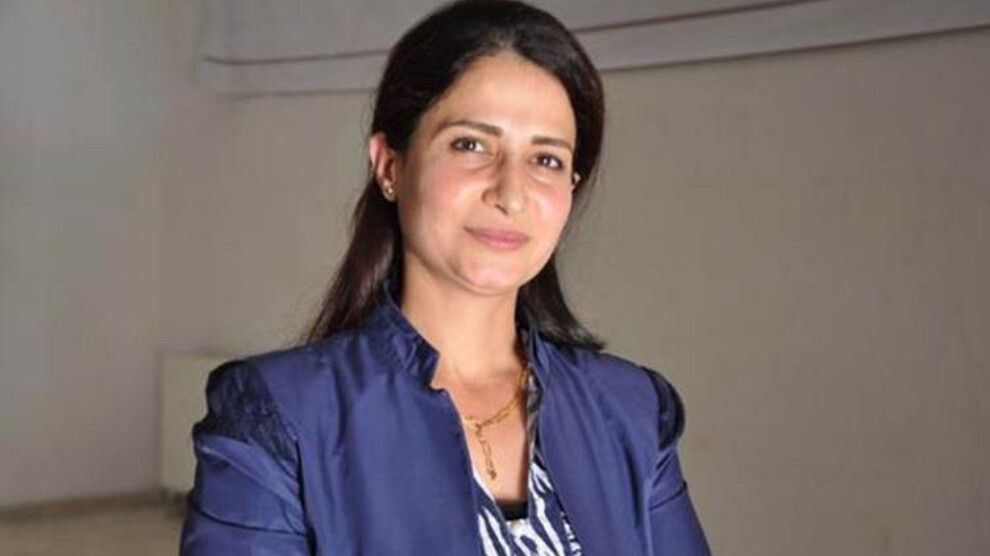
Hevrîn Xelef was born in the city of al-Malikiyah on November 15, 1984 and was a politician and human rights activist; in her work for a democratic, pluralistic and decentralized Syria she was elected as Secretary General for the Future Syria Party after its formation on March 8, 2018. With her work, Hevrîn was seeking to promote equality between women and men and to guarantee the rights and freedom of all women of all cultures and ethnicities. On the morning of October 12, 2019, she was going to her workplace in Raqqa, near the village of al-Tarawaziyah on the M4 international road. Ahrar al-Sharqiya, a Turkey-backed faction of the so-called syrian national army, ambushed her, knowing that she would pass by. She was beaten, dragged by her hair, ad executed with her driver in the field. Videos of brutality on her body were released afterwards – in one of them turkish-backed soldiers are stepping on her, singing “this is the corpse of pigs.”
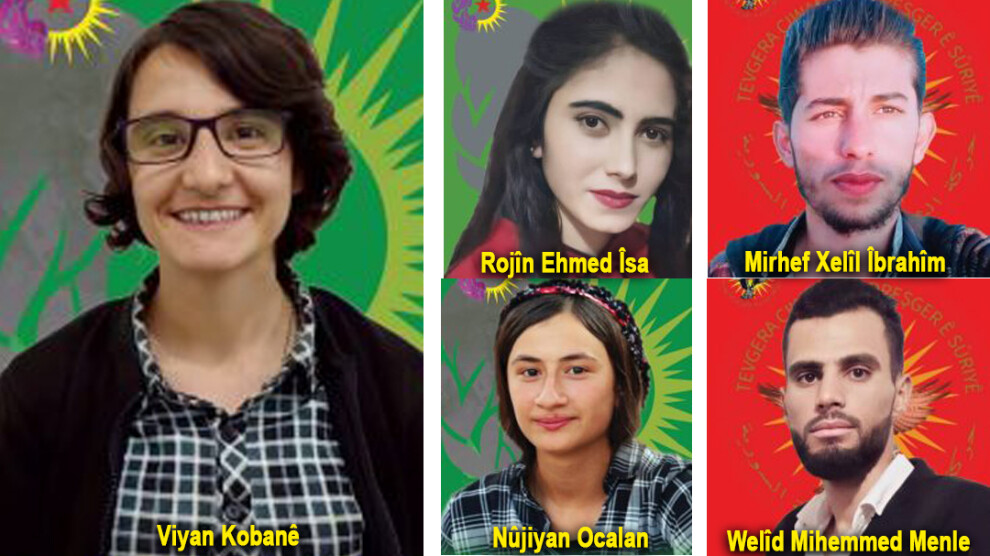
Viyan Kobanê, Nûjiyan Ocalan and Rojîn Ehme Îsa were members of the Revolutionary Youth Movement and the Young Women’s Union. They were killed on December 25, 2021, when a Turkish unmanned drone bombed a house in the Shahid Peyman neighborhood in the east of Kobane city. As well as these three women, three other members of the two groups were also killed – Mirhef Xell brahm, Mesd brahim and Welid Mihemmed Menle.
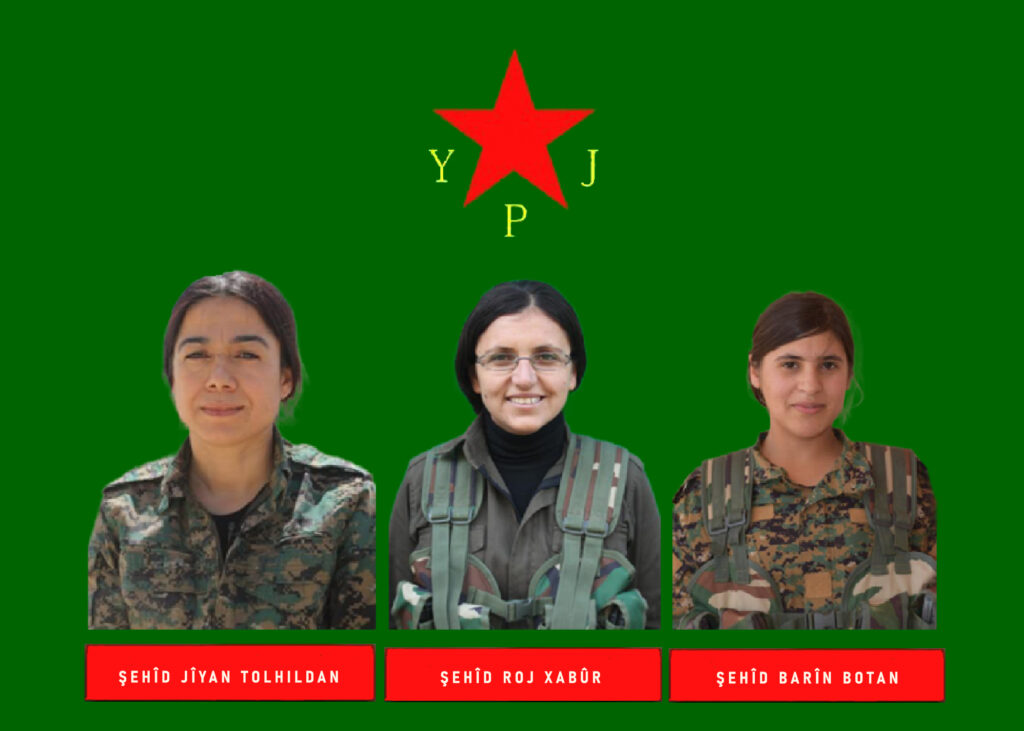
Jiyan Tolhildan was born in 1982 in an Afrîn village. At young age she was made aware of anti-Kurdish discrimination. For this reason Jiyan was involved in the women’s and the Kurdish resistance movement very early. She was commander in the anti-terror units (YAT) and performed a unique role organizing the people for the revolution. She played an active role from the initial steps of the Rojava revolution to the establishment and formation of the YPJ and YAT across all areas of the revolution. Roj Xabûr was born in 1992 in Darbesiye. From the beginning of the revolution in Rojava she became inspired, taking an active role. Roj was a YPJ commander, leading liberation campaigns against ISIS, and training hundreds of fighters. Barîn Botan was born in 2003 in the Ehrez region of Shehba Canton. She was the third daughter in a family of five. Barîn grew up in a kurdish family loving their culture and land. When she was still young, she joined the women’s revolution in Rojava. She was a member of the anti-terror units (YAT). She is remembered by those who recall her wanting to save all women from oppression, and emphasising that women should not accept the cruel and authoritarian life created by men. Jiyan Tolhildan, Roj Xabûr and Barîn Botan were killed on July 22, 2022 by a Turkish drone attack near the Qamishlo road. They had just joined the Ten Years of Women’s Revolution Forum on the occasion of the 10th anniversary of the Women’s Revolution in Rojava.
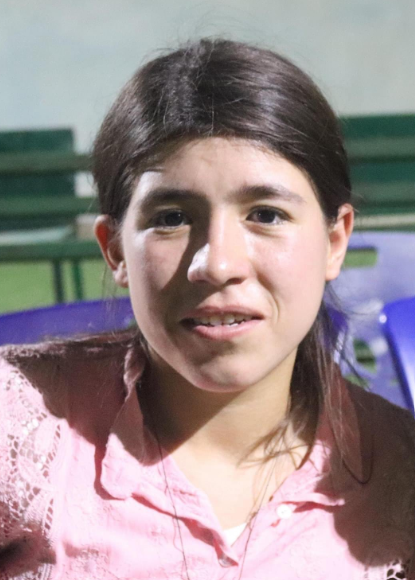
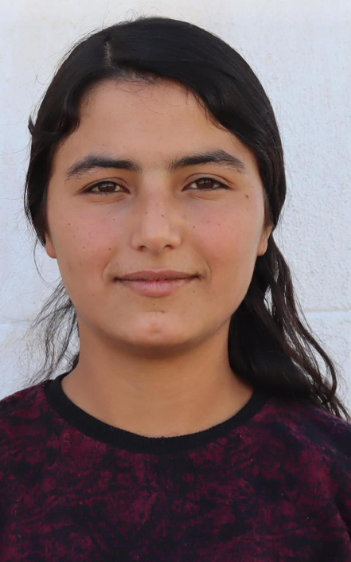
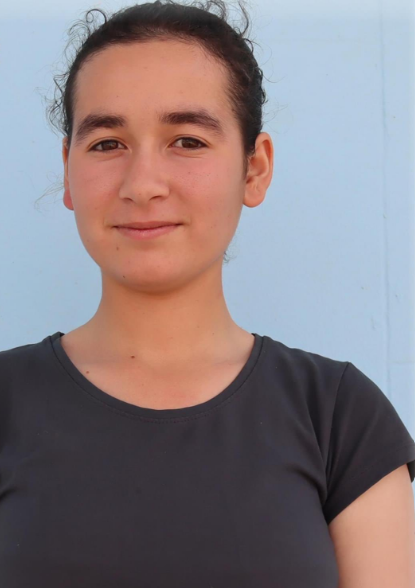
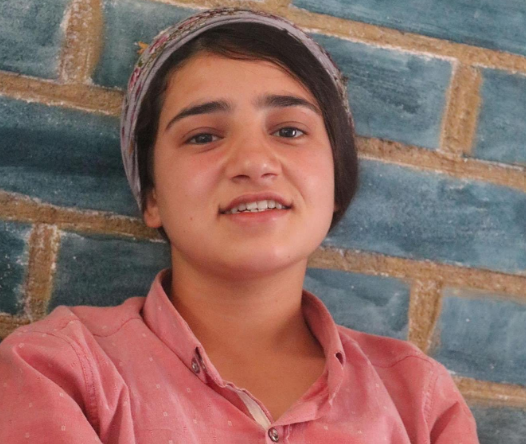
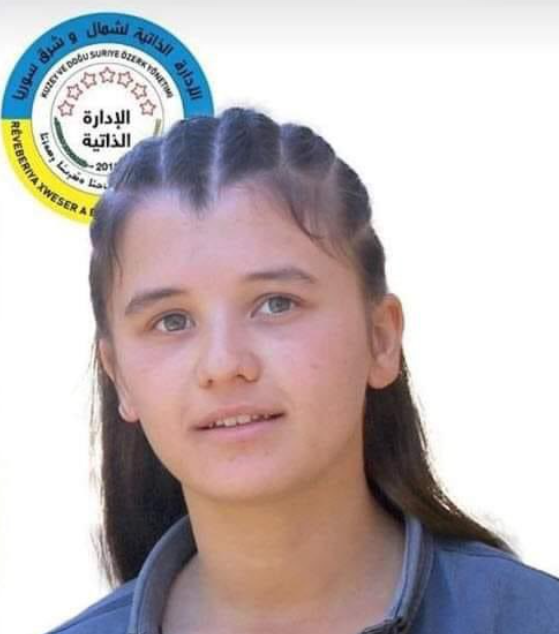
Rania Eta, Zozan Zedan, Dilan Ezedin, Diyana Elo, and Silava Remedan were members of a children’s educational centre which was a product of the collaborative efforts of the UN and SDF to prevent children joining military units. Children Protection Offices, operating in various cities across North and East Syria, work to demobilize minors. Demobilized minors can return to their families or attend educational academies. Such educational centers are also particularly important in offering a safe environment for girls who cannot return to home due to abusive family situations, or the prospect of a forced marriage. The 4 girls killed by Turkey had formerly joined YPJ in non-combat positions, but had been excluded as per the joint UN-SDF demobilization efforts. At the centre, they were instead able to attend lessons and live with other children. They were targeted on August 18, 2022 by a Turkish drone strike while playing volleyball outside. Rania, Zozan, Dilan, Diyana died the same day while Silava some weeks later.
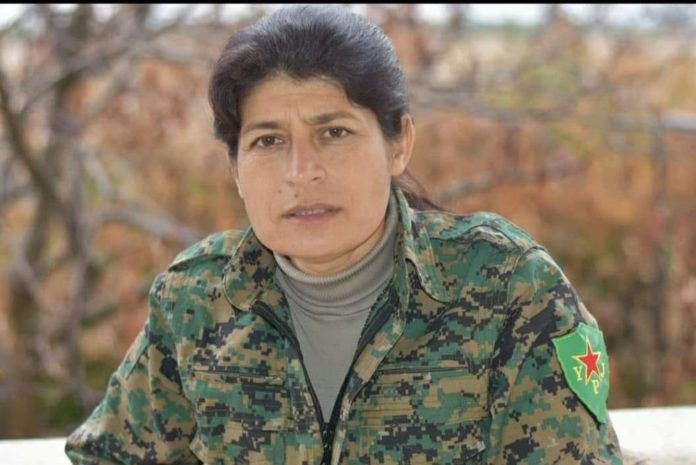
Sosin Bîrhat was born in 1976 in Afrin in western Rojava and then moved to Aleppo. While still very young she came in contact with Abdullah Ocalan’s revolutionary ideas, joining youth groups and commencing her role in the struggle. In 1995 she joined the Kurdish liberation movement, and when the revolution in Rojava exploded, she played an active part, taking on the responsibility of a commander. Realizing that the freedom of women and the society in which they live are intrinsically linked, her dream was to revive the culture of the mother goddess, and for this she carried on a nonstop struggle on two fronts. Firstly, the armed struggle against the powerful dictators oppressing society, and second, the struggle of education against the imprint that the patriarchal system has left in all our the hearts and minds. On October 19th, 2019 she became a martyr following a Turkish airstrike on the car she was travelling in.
Outside north and east Syria:
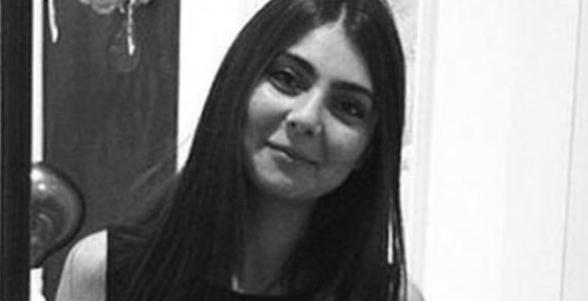
Dilek Doğan: born in 1991, original from Marash, north Kurdistan, but lived in Istanbul. During a search of her home by the police in 2015, she asked a policeman to wear overshoes. A debate started, ending with a drawn gun with which Dilek was shot. The policemen was sentenced to 6 years and 3 months for “wilful negligent murder”. However, her brother was then sued for statements about her trial, and her lawyer, Ebru Timtik, was arrested on a similar basis, and then died on the 238th day of a hunger strike demanding a fair trial.
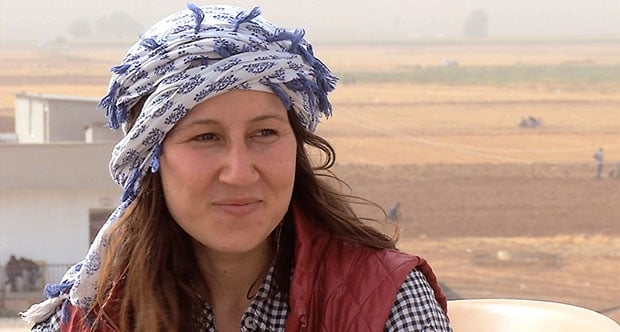
Kader Ortakaya was born in the Siverek district of Urfa in a working class family. She was 28 on November 6, 2014, when the Free Art Initiative tried to reach the border of Kobane with a human chain action. The Turkish government closed the border to prevent humanitarian aid and human rights observation, in order to cover up Turkey’s support for the IS. The Free Art Initiative action was attacked with tear gas and live ammunition. During this confrontation, a border guard shot Kader Ortakaya with a bullet to the head. Despite evidence and a widely signed petition, the Suruç Attorney General’s Office has not yet taken any action to find the murderer of Kader Ortakaya.
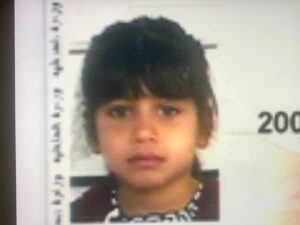
Eyşê Ehmet Ferhan was a 17 year old child, living in Maxmure camp, northen Iraq. Though Eyşê was a high school student, she also worked to support her family financially. In order to help her mother, she went along with two young women named Hewa and Ezîme to the place where her family takes care of sheep. Eyşê and the other two women were targeted by Turkish warplanes and were killed on April 15, 2020. Their deaths were reported to the United Nations and Iraqi officials have been following the situation, but still there has been no accountability for this crime.
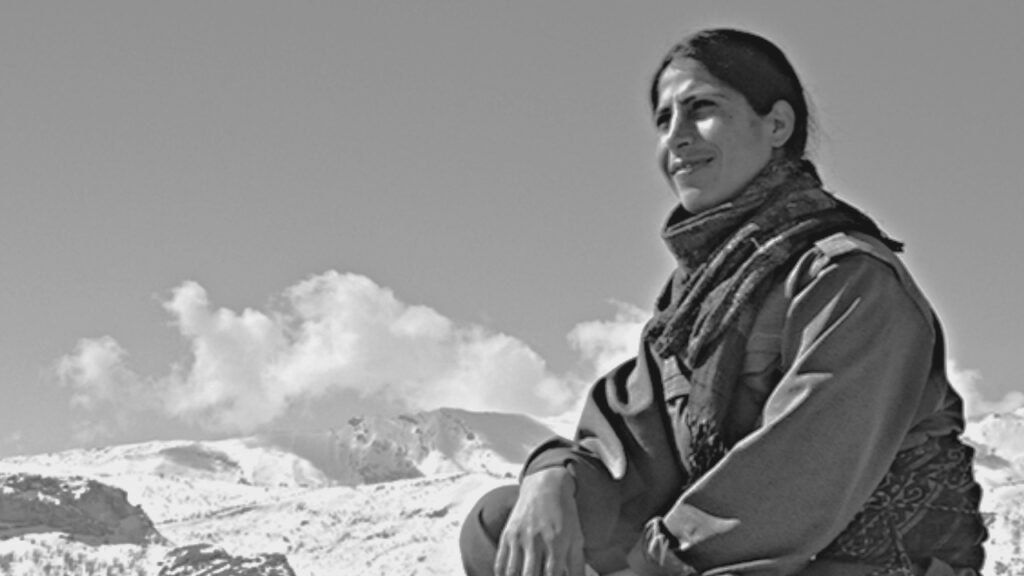
Kader Kevser Ertürk (Ekin Wan) was born in Van’s Çaldıran district in 1986. She joined the PKK in 2008 and has been active in Varto rurals for her last three years. Because she was raising awareness on male violence she was especially admired by women among whom she worked. Kevser Eltürk died in the clash between PKK members and Turkish soldiers in Varto district in Muş. She was undressed, photographed and paraded at the place where she was shot. Kevser Eltürk’s body was displayed naked by the soldiers and her photo was shared on social media.
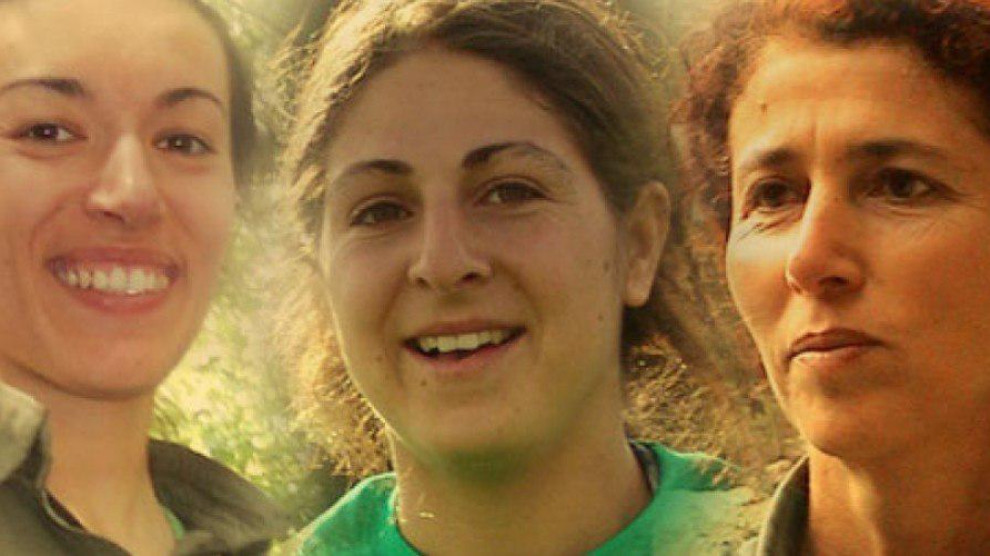
Sakine Cansiz was born on February 12, 1958 in Dersim, in North Kurdistan. She was one of the co-founders of the Kurdistan Workers’ Party (PKK). She had a leading role in the development of the Kurdish Women’s Movement, always insisting on women rights. In the 1980s, she was arrested and brought to Diyarbakir Prison: here she not only endured the worst tortures and assimilation attempts inflicted by the Turkish police, but she also gave strength to other women around her to do the same. Fidan Doğan was born on January 17, 1982 in Elbistan, in north Kurdistan. When she was very young her family were forced to emigrate to France, where she continued her education. Fidan was the Representative of the Kurdistan National Congress (KNK) in France and in 2011 she was also responsible for the Kurdistan Information Office in Paris. Leyla Soylamez was born on January 1, 1989 in Mersin, north Kurdistan, her family coming from the Lice district of Diyarbakır. In the ‘90s she moved with her family to Germany, where she began to study architecture. She organised young women in cities across Europe, ending up as a representative of the young Kurdish women’s movement in France. On January 9, 2013, Sakine Cansiz, Fidan Dogan and Leyla Saylemez were executed with a bullet to the head inside the offices of the Kurdistan Information Center at 147 Rue La Fayette in Paris. Ömer Güney, as suspected murderer, was arrested a few days later. The investigation in France revealed numerous indications that he had acted on behalf of the Turkish secret service (MIT), and prosecution’s indictment confirmed that: “Many elements of the trial suggest that MIT was involved in the arrangement and preparation of the murders“. It is evident that no initiatives or efforts were made by the French authorities to adequately illuminate the background of this political murder case despite Ömer Güney being identified as the person used to pull the trigger. Ömer Güney was declared to have “died in prison”: no more information has been forthcoming and with this, the French authorities attempted to cover up a high-level political assassination.
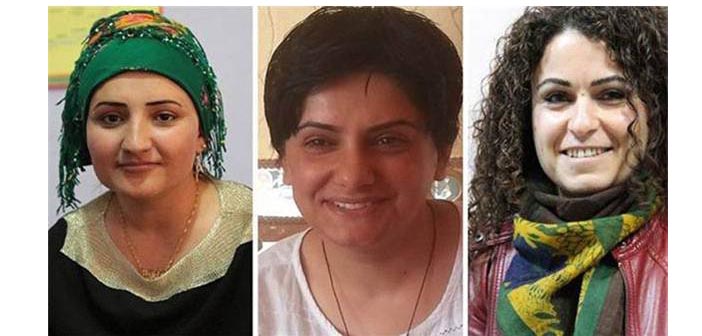
Sêvê Demir was born in 1974 in Sute, Mardin, North Kurdistan. Because of the repression of the Turkish state she migrated to Manisa (Izmir) in the ’90s. She was involved in the political work of liberating women and in the foundation of the free and democratic women’s movement (Tevgera Jinen Azad û Demokratik). Sêvê was imprisoned in Amed and took part of the hunger strike there. She was member of the DBP party. Pakize Nayır was born on the 13th of April 1989 in the Silopi district of Sirnak, north Kurdistan, and she lived there her whole life. She was part of the women’s political resistance from a young age, while at the same time taking material and moral responsibility for her family. Pakize was co-chair of Silopi People’s Assembly. Fatma Uyar was born on August 28, 1988 in Duhok village and after her birth, the family moved to Sirnak (both in north Kurdistan). Fatma was active in the youth movement. She was imprisoned in Mardin and Siirt and remained politically active as part of the Congress of Free Women (KJK). Sêvê Demir, Pakize Nayır and Fatma Uyar were assasinated during the curfew in the Silopi district of Sirnak on January 4, 2016. They were targeted by a Turkish tank, and the ambulance did not arrive for many hours – they therefore died as a result of serious injuries.
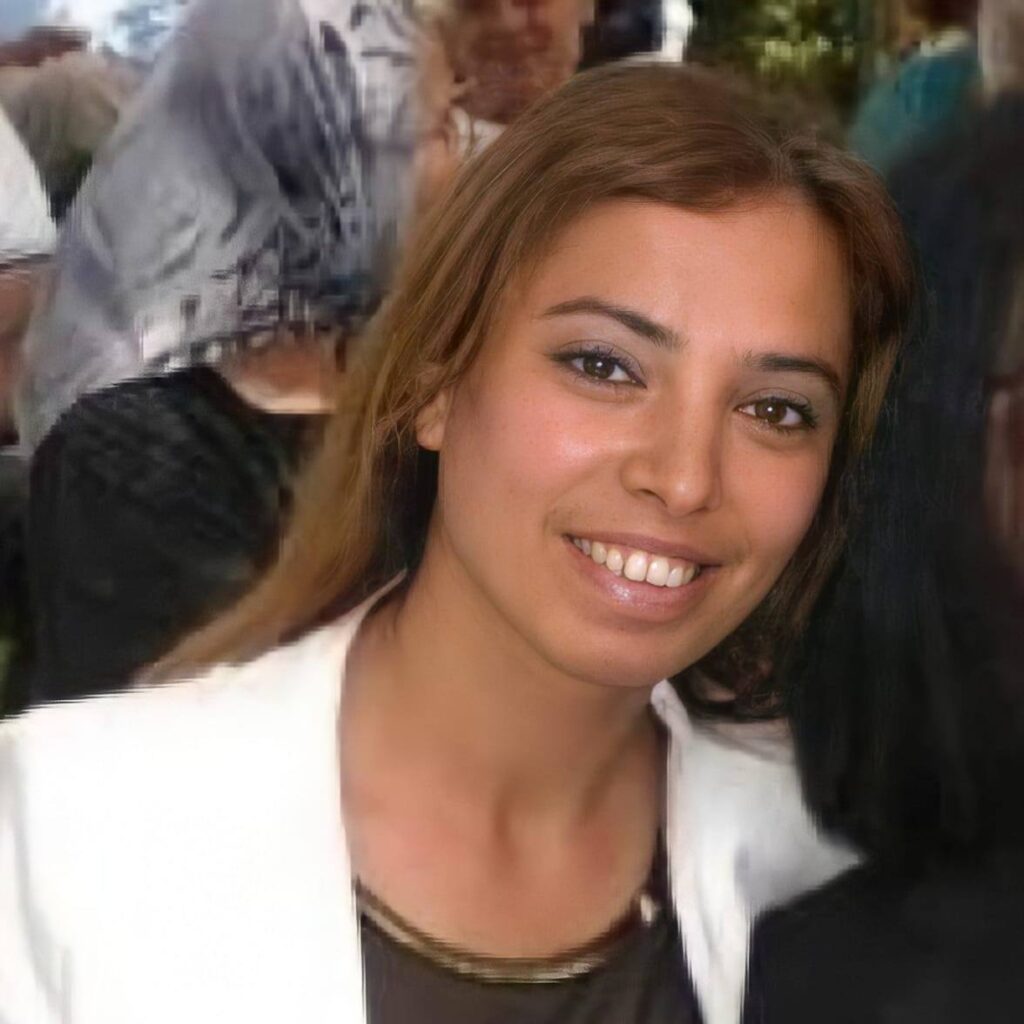
Deniz Poyraz was born in 1983 in Izmir, while her family was from Tavuklu village, Mardin, North Kurdistan. Because of state repression in 1980 her family left the area and settled in Izmir. Deniz was the oldest of nine brothers and sisters. She stopped her education to work in the textile industry in order to materially help her family. She was an active member of the HDP party, taking part in all demonstrations and was especially active in the women’s resistance works She was shot and killed on June 17, 2021 at the headquarters of the People’s Democratic Party (HDP) in Konak, Izmir. The murderer was a Turkish fascist trained in Syria, who entered the HDP building with a gun in his hands in front of security forces.
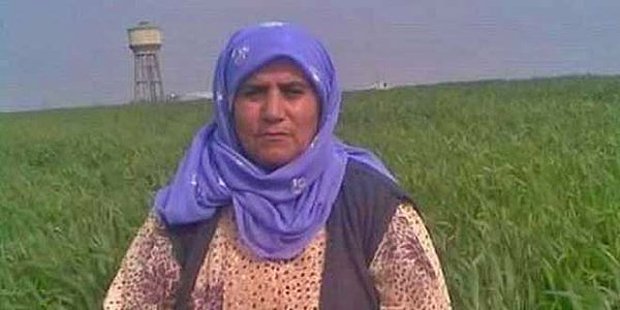
The 57-year-old Taybet Inan was a mother of 11 children. She lived in the district of Silopi in Sirnak, north Kurdistan. On 14 December 2015, a curfew was imposed in the Silopi district of Sirnak. On the fifth day of the curfew, 57-year-old Taybet Inan was shot. She struggled for about 6 hours in the same place until she finally lost her life in the street. Taybet Inan’s body lay on the street for seven whole days. Her body could not be recovered because of the siege and curfew of the Turkish army, which was an obstacle for the emergency services. Relatives and acquaintances who tried to recover the body of 57-year-old Inan were also shot and attacked.

